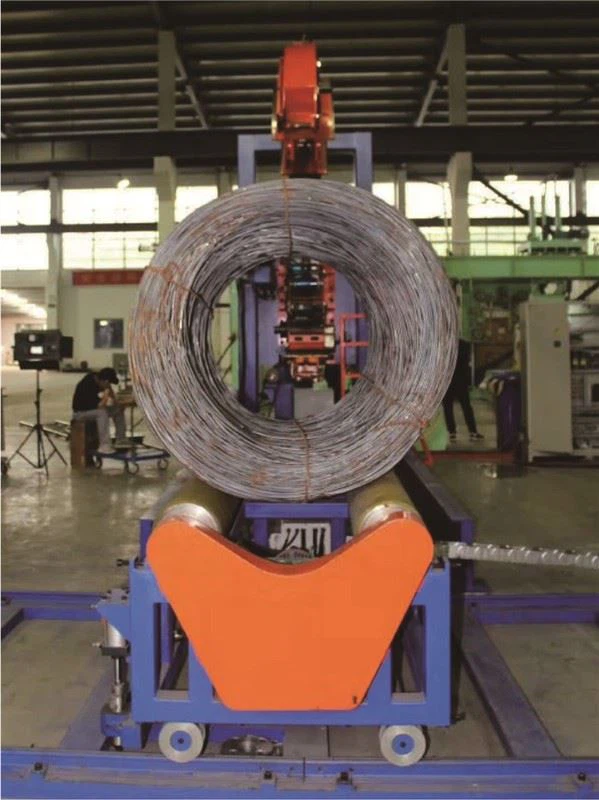How Does a Continuous Furnace Revolutionize Heat Treatment Processes?
In my 30 years of experience in the mechanical and electrical automation industry, I've seen how continuous furnaces have transformed heat treatment processes. These systems are not just machines; they're complete solutions that streamline carburizing, hardening, and tempering operations. Let me walk you through how these systems work and why they're essential for modern manufacturing.
What Makes Continuous Furnaces So Efficient?
Continuous furnaces are designed for high-volume production with consistent quality. The system typically includes:
- Feeding Mechanism: Ensures smooth material flow
- Heating Chambers: Maintain precise temperature control
- Quenching Tanks: Rapid cooling for hardness
- Tempering Furnaces: Final heat treatment for durability
- Washing Systems: Clean and prepare surfaces

Why Is the Rear Washing Tank Crucial in Heat Treatment?
The rear washing tank is one of the most critical components in the system. After quenching, parts need thorough cleaning to remove oil residues before tempering. Here's what makes it special:
- Dual Functionality: Combines degreasing and rinsing
- Energy Efficiency: Uses preheated water from the carburizing furnace
- Oil Recovery: Separates and recycles quenching oil
- Temperature Control: Maintains optimal washing conditions (60-80°C)
What Are the Key Features of Modern Washing Systems?
Modern washing systems come in two main types: immersion and flat type. Here's a comparison:
| Feature | Immersion Type | Flat Type |
|---|---|---|
| Capacity | 2,800 liters | 900-2,100 liters |
| Heating | 52 kW electric | 26-39 kW |
| Conveyor Width | 600-1400 mm | 600-1400 mm |
| Pump Power | 3 HP | 2-5 HP |
| Drying | Hot air blower | Hot air blower |
How Does the Washing Process Work?
- Immersion Cleaning: Parts are submerged in heated cleaning solution
- Oil Separation: Specialized system separates oil for recycling
- Rinsing: High-pressure spray removes remaining contaminants
- Drying: Hot air blower ensures complete drying
- Transfer: Clean parts move to tempering furnace
What Are the Technical Specifications?
Here's a detailed breakdown of the immersion type washing system:
| Component | Specification |
|---|---|
| Washing Bath | 2,800 liter capacity |
| Heating System | 52 kW total power |
| Conveyor Belt | SUS204 stainless steel |
| Drying Blower | 3.7 kW power |
| Oil Collector | Band type, 0.2 kW |
What Are the Advantages of This System?
- Energy Efficiency: Uses waste heat from other processes
- Oil Recovery: Reduces operating costs
- Consistent Quality: Maintains uniform cleaning
- Automation: Reduces labor requirements
- Durability: Stainless steel construction for longevity
How Does This Compare to Other Heat Treatment Systems?
While continuous furnaces are excellent for high-volume production, other systems have their place:
- Batch Furnaces: Better for small batches or varied parts
- Vacuum Furnaces: Ideal for oxidation-sensitive materials
- Bell Furnaces: Excellent for wire annealing
- Pit Furnaces: Suitable for large, heavy components
Each system has its strengths, but for continuous, high-volume production of similar parts, the continuous furnace with integrated washing system is hard to beat.
What Should You Consider When Choosing a System?
- Production Volume: Continuous systems need sufficient throughput
- Part Variety: Consider flexibility requirements
- Energy Costs: Look at long-term operating expenses
- Maintenance: Consider ease of service and parts availability
- Space Requirements: Ensure adequate facility space
In my experience, the key to successful heat treatment is choosing the right system for your specific needs and maintaining it properly. The continuous furnace system with its integrated washing solution offers an excellent balance of efficiency, quality, and cost-effectiveness for many manufacturing operations.


